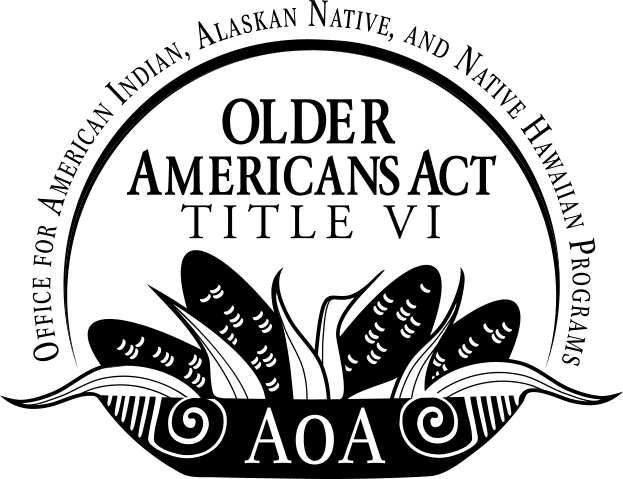This site is being reviewed and updated as needed to comply with President Trump's executive orders.
Title VI Funds
Title VI Part A/B funds can be used for a variety of transportation services and related expenses. For instance, tribes may provide elders with transportation to and from medical appointments, meal sites, or socialization events. Additionally, tribes may offer medical transportation assistance or transportation related services such as meal deliveries or home visits.
Some examples of how Title VI Part A/B funds can be used include:
- Accessibility Enhancements
- Emergency Roadside Assistance
- Gasoline, Oil, & Other Automotive Fluids
- New/Used Vehicle Purchase
- Safety Equipment
- Title/Registration Fees
- Vehicle Accessories
Please see our Title VI Spending Guide for a more detailed list of eligible transportation related expenses.
Also, any single supply or equipment purchase over $10,000 requires ACL approval, so be sure to complete the Large Purchase Request Form and submit it to your Regional Administrator (RA) prior to purchase.
Other Funding
Federal
Funding opportunities from federal agencies can be found on Grants.gov. Most federal transportation grants are provided by the U.S. Department of Transportation, Federal Transit Administration (FTA), although other agencies may have funding opportunities available. FTA’s current programs for tribal entities are listed on its dedicated webpage.
State
Many states have funding opportunities and technical assistance programs available for transportation services. The National Center for Mobility Management (NCMM) administers a list of states with various transportation agencies, and it can be used as a contact list for tribes to inquire about grants, technical assistance, or other related programs.
Medicaid
Transportation to medical appointments is a required benefit for Medicaid recipients and some states may reimburse tribes for providing such a service. Please contact the appropriate state Medicaid office for details regarding its transportation program.
County
Area Agencies on Aging can provide assistance understanding and coordinating shared, non-medical transportation services. Nearby counties may provide further opportunities for support and should be contacted to inquire about potential funding or assistance programs.
Private Organizations
Additional funding or support can sometimes be obtained through companies, foundations, religious or charitable organizations, local businesses, or private donors. NCMM also routinely updates its website with funding opportunities from private organizations.

Technical Assistance
Do you need help finding transportation options for your Title VI elders? If so, then be sure to reach out to one of the free technical assistance providers listed below.

National Rural Transit Assistance Program (National RTAP)
Email: support@nationalrtap.org
Phone: 888-589-6821
Hours: Monday-Friday, 9:00 am to 5:00 pm ET
The National Rural Transit Assistance Program (National RTAP) provides technical and peer assistance for rural and tribal transit providers and state RTAP programs. Are you grappling with a tribal transit issue or thinking about starting up a tribal transit service? If you would like to talk with someone who has faced similar challenges, consider requesting assistance from a knowledgeable tribal transit provider. Peer assistance can include conference calls, e-mail contact, or even a brief site visit.
National RTAP also hosts the Tribal Transit Peer Forum, which is a place for sharing questions, information, and resources with peers about Tribal Transit related topics. Tribal Transit Managers who would like to join the forum can send an email to nrodriguez@nationalrtap.org.

National Aging and Disability Transportation Center (NADTC)
Email: contact@nadtc.org
Phone: 866-983-3222
Hours: Monday-Friday, 9:00 am to 5:00 pm ET
Looking For A Ride?
Visit the Eldercare Locator Website or call 800-677-1116
The National Aging and Disability Transportation Center (NADTC) is a technical assistance center focused on increasing transportation options for older adults, people with disabilities and caregivers, to enhance their ability to live more independently within their communities throughout the United States.
The response to technical assistance inquiries may include any or all of the following:
- One-on-one consultation by phone to discuss the problem or issue.
- Tailored technical assistance by providing links to resources, programs or individuals with expert knowledge or experience in the issue.
- Conference calls facilitated by NADTC staff to connect the inquirer with others who have handled similar issues/challenges.
NADTC can provide information and technical assistance on the following topics, as well as other issues related to transportation:
- ADA and Paratransit
- Assisted Transportation
- Caregivers
- Coordination
- Funding
- Human Services Transportation
- Livability
- Mobility Management
- Older Driver Safety & Transition
- Public Transportation
- Volunteer Transportation
Last Modified: 08/29/2024

